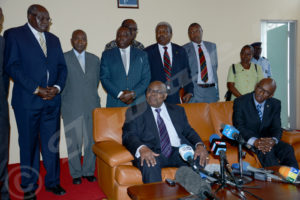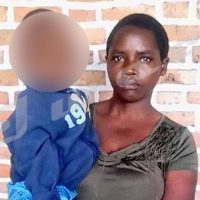A briefing session for registered civil societies, religious groups, youths, women and other parties and political actors that were not invited in February 2017 is scheduled from 3 to 5 May in the capital Bujumbura. All the groups say they expect much from the consultations.

The Facilitation team in the Inter-Burundian Dialogue plans to meet the groups it didn’t meet in recent dialogue sessions
“The facilitator must accept that the dialogue process be accelerated so that Burundians can move forward and prepare for the 2020 elections”, says Gilbert Bécaud Njangwa, Chairman of the National Observatory of Elections and Organizations for Progress-ONELOP.
He also says the facilitation should convince the EAC Heads of State to demonstrate their commitment to the resolution of the conflict existing between Burundi and Rwanda. “It would be better if the facilitation agrees that Rwanda is always involved in the destabilization of the country’s security. All political parties and Civil Society organizations should also be invited to the next round of talks to express their opinions and considerations”, he says.
The same view is shared by Eraste Nzosaba, Chairman of National Youth Council. “This dialogue process should be speeded up so that Burundians move forward in their daily activities”, he says.
He also says youths hope that their claims including the consolidation of peace and security, fight against unemployment and their involvement in decision making will be discussed during the dialogue sessions. “We wish that the inclusive dialogue be held in the country and refugees be repatriated”, he says.
The Facilitation needs to identify the conflicting parties
“We do not expect much from the briefing session” says Eric Nkenguburundi, spokesperson for MRC-Rurenzangemero party.
He says the consultation sessions are taking much time. “We are still in a consultation phase instead of starting the negotiation phase itself”, he says. Nkenguburundi also says the opposition is anxious because the EAC Heads of State haven’t yet held a summit to make decisions which would force the government and ruling party to engage in the inclusive dialogue.
Jérémie Ngendakumana, Spokesperson for the platform of opposition parties-CNARED, says it is a good thing that the facilitation team has invited the groups it hasn’t met in recent sessions. “It will be a good opportunity for participants to express their opinions and considerations on the management of the current crisis and how it should be ended”, says Ngendakumana.
He, however, says the facilitation has not met with all civil society organizations, youth, women and the opposition in exile i.e. all those opposed to the third term. “The facilitator must meet them and consider their opinions”, he says.
In addition, he says, if the Ministry of Foreign Affairs identifies these groups, it means it will select those who support the government. “CNARED must identify the organizations of youth, women and political parties that are opposed to the third term to meet the facilitation in a safe place”, he says.
Ngendakumana says the facilitation will only be able to identify all the conflicting parties involved in the Burundian crisis if it meets all these people.
Macocha Moshe Tembele, Personal Assistant to Mkapa, former Tanzanian President and Facilitator in the Inter-Burundian dialogue, says the objective of this session is to present the proposal for their consideration, receive their opinions on the same and appraise them in the programs of the events leading to the fourth session of the inter-Burundian dialogue.



















 IWACU Open Data
IWACU Open Data

